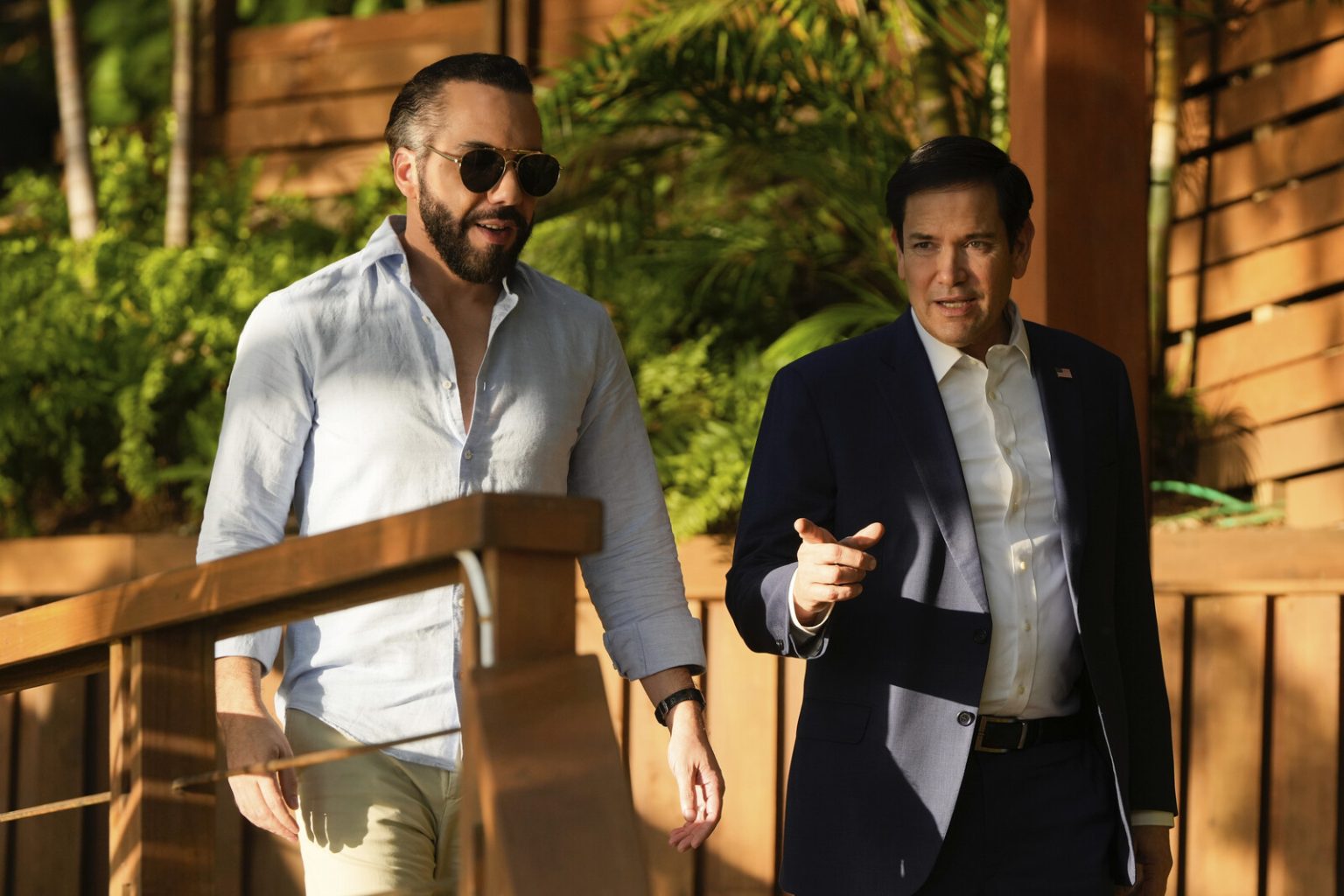El Salvador’s surprising offer to accept convicted criminals and current inmates from the United States has sent ripples through the international community. The announcement, made by US Secretary of State Marco Rubio following a meeting with Salvadoran President Nayib Bukele, has been lauded by the US administration as an ”unprecedented, extraordinary migration agreement.” While the specifics of the agreement remain shrouded in ambiguity, its potential implications for both nations are vast and complex, encompassing legal, ethical, and geopolitical dimensions. The move represents a significant departure from traditional international agreements and raises numerous questions about the motivations of both countries involved.
For El Salvador, a small nation grappling with significant social and economic challenges, the decision to accept US prisoners presents a perplexing paradox. While the Bukele administration has not publicly disclosed the rationale behind this agreement, several theories have emerged. One possibility is that the agreement is linked to financial incentives or aid packages from the United States. El Salvador is heavily reliant on US financial assistance, and accepting prisoners could be viewed as a bargaining chip to secure further economic support. This perspective, however, raises concerns about the ethical implications of essentially ”renting out” prison space and potentially compromising the human rights of the incarcerated individuals. Another hypothesis is that the agreement is part of a broader strategy to strengthen diplomatic ties with the US. By aligning itself closely with the Trump administration, El Salvador may be seeking to bolster its position within the regional political landscape and secure US support on other critical issues.
Conversely, the United States’ motivation for transferring prisoners to El Salvador is seemingly rooted in the Trump administration’s hardline stance on immigration and crime. The US prison system is notoriously overcrowded and costly, and transferring inmates to a foreign country could be seen as a way to alleviate these pressures. However, this approach raises serious legal and ethical questions regarding the jurisdiction and oversight of these transferred prisoners. Guaranteeing the humane treatment and due process rights of individuals incarcerated in a foreign penal system presents a significant challenge. Furthermore, critics argue that this agreement could set a dangerous precedent, potentially enabling the outsourcing of incarceration to countries with weaker human rights protections.
The implications of this agreement extend beyond the immediate transfer of prisoners. It could potentially reshape the dynamics of the US-El Salvador relationship, impacting areas such as trade, security cooperation, and development assistance. The agreement could also influence migration patterns, potentially creating new incentives or disincentives for individuals considering migration to the United States. Furthermore, the agreement’s impact on El Salvador’s domestic politics and its relationship with other countries in the region remains to be seen. The agreement could strain El Salvador’s resources and further exacerbate existing social and economic inequalities.
Furthermore, the lack of transparency surrounding the agreement fuels speculation and raises concerns about the potential for abuse and exploitation. The absence of publicly available details regarding the terms of the agreement, the selection criteria for transferred prisoners, and the mechanisms for oversight and accountability creates an environment ripe for potential human rights violations. It is crucial for both governments to provide clear and comprehensive information about the agreement to address these concerns and ensure that the rights of all involved are protected.
In conclusion, El Salvador’s offer to accept US prisoners presents a complex and multifaceted issue with far-reaching implications. While the motivations behind the agreement remain unclear, it raises significant questions about the ethics of prisoner transfers, the potential for human rights abuses, and the long-term impact on the US-El Salvador relationship. The lack of transparency surrounding the agreement further exacerbates these concerns. It is essential for both governments to engage in open and honest dialogue about the agreement, addressing the legitimate concerns of human rights organizations, legal experts, and the international community to ensure that this unprecedented agreement does not come at the expense of fundamental human rights and the rule of law.














